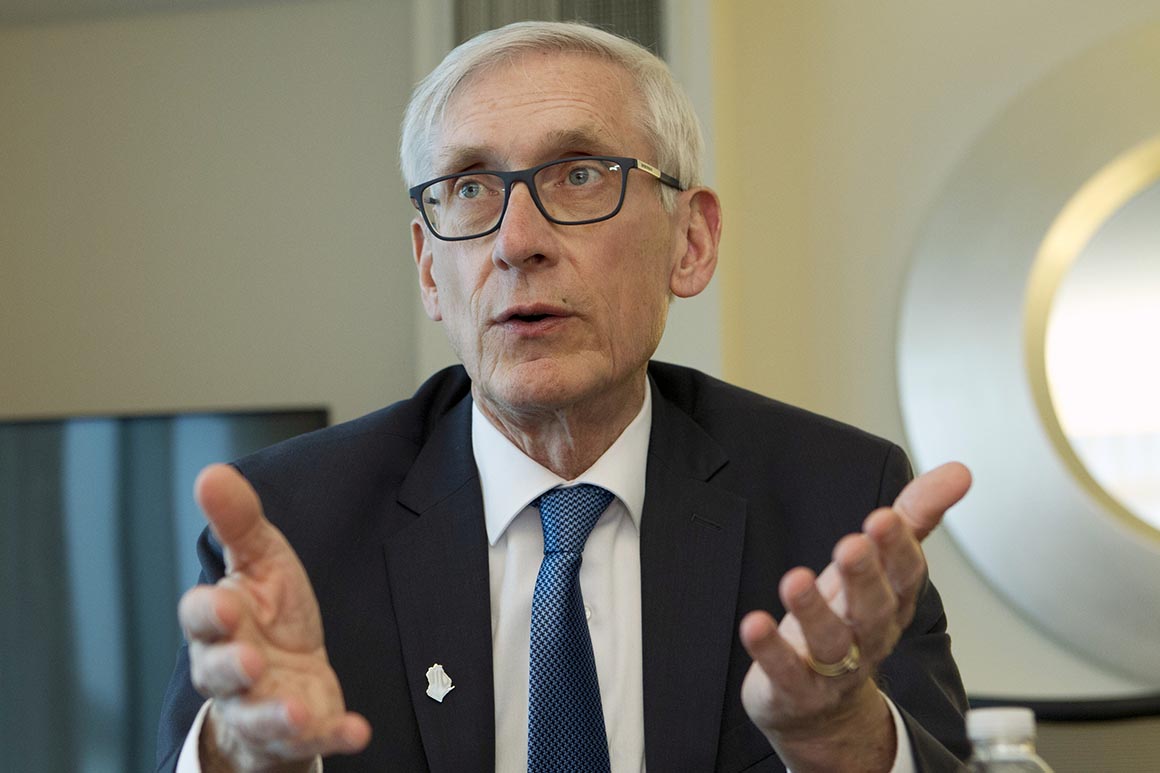
“What this is going to do is further disenfranchise voters from participating in electoral politics,” said Marcelia Nicholson, a Milwaukee County supervisor. The city of Milwaukee usually has 1,400 election workers spread across 180 voting sites. Now, the city is down to just 350 poll workers, and will have in-person voting centers at just five sites, the Milwaukee Election Commission announced on Friday. The city of Green Bay will have just two in-person voting sites instead of the usual 31.
“Despite this pandemic, despite Milwaukee’s [high coronavirus case rate] … you telling them that they need to go to the polls and vote and is akin to telling them to go vote in a hurricane. It is crazy,” Nicholson said.
Both Heck and Nicholson said they can’t in good conscience tell people to go to the polls in person on Tuesday, and encouraged voters to request an absentee ballot, as many other officials in the state had. The deadline to request the absentee ballot is Friday evening, and that was after a court-ordered extension.
A record-smashing 1.2 million people had requested an absentee ballot as of Friday morning, according to data from the state elections board. But that’s well short of the 2.1 million people who voted in the spring election in 2016, when both parties had a competitive presidential primary, meaning potentially tens of thousands of voters, if not more, could be be forced to go to the polls.
U.S. District Judge William Conley also extended the deadline for absentee ballots to be returned to 4 p.m. on April 13, and waived a witness signature requirement for voters who were unable to “safely obtain a witness certification despite reasonable efforts to do so.”
Following an appeal, the 7th Circuit restored the witness signature requirement. The court, however, left the extended absentee ballot timeline in place.
The Republican National Committee, state Republican Party and the GOP-controlled Legislature all appealed the order. In its appeal, the Legislature argued that Conley’s order was a “belated judicial rewrite of Wisconsin’s voting laws” that opened up the process to fraud and effectively allowed voters to cast ballots after Election Day, because ballots had only a time they were required to be returned but no postmark deadline.
Across the state, election clerks are facing a dramatic shortage of poll workers that could exacerbate the health risk to workers and voters. A report from the Wisconsin Elections Commission on Tuesday found that nearly 60 percent of Wisconsin’s municipalities were reporting a shortage of poll workers, and the situation has continued to deteriorate in some areas in the state.
“Voting will be occurring in some of the city’s hot spots and we’re very concerned about the public having to choose between voting and their personal safety, but also the election itself acting as a hot spot of spreading the virus,” Neil Albrecht, executive director of the Milwaukee Election Commission, said. Albrecht has called for in-person voting to be canceled.
Albrecht estimated that around 100,000 voters in the city will vote in this year’s election, down from nearly 168,000 in the 2016 spring election. So far, 75,000 Milwaukee residents have already voted via absentee, and Albrecht expects somewhere between 3,000 and 4,000 people to vote in person on Election Day.
“Voting is important and democracy is important,” he continued. “But when you think about the number of people that will be disenfranchised in an election that’s occurring in a pandemic, and when you think about the public health risk, this is not democracy.”
Source: politico.com
See more here: news365.stream






